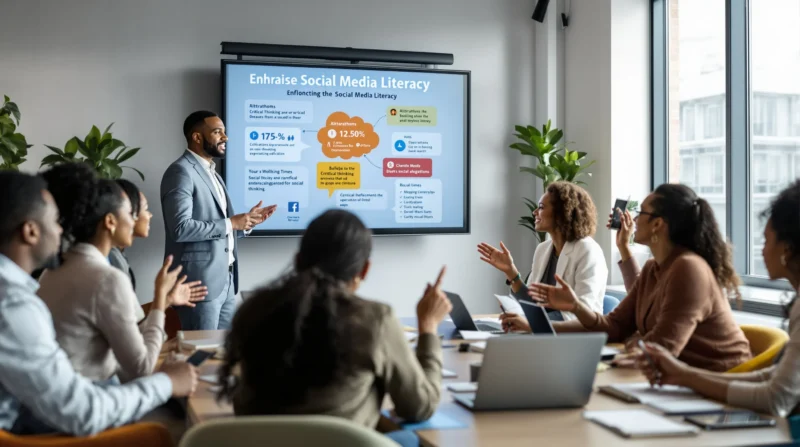
Huawei executive, Meng Wanzhou, was arrested in Canada on December 1st. Her arrest is the result of the United States’ pressure to extradite her for violating US sanctions against Iran. The deal that saw her return to China has been heavily criticized by Canada and other countries involved.
An Air China Boeing 777W carrying Huawei Technologies Co.’s finance director took departure from Vancouver at 4:30 p.m. local time on Friday, just as two Canadian men arrested in China left by aircraft from Beijing.
The ostensibly well-coordinated prisoner swap untangled a high-profile tangle in ties between China, the United States, and Canada. According to Justice Department officials and others close to Ms. Meng’s legal team, it was a significant change in Meng Wanzhou’s legal stance that led to a breakthrough in talks early last week.
China also allowed Americans Cynthia Liu and Victor Liu, who had been barred from leaving the country since 2018, to return to the United States over the weekend, according to individuals familiar with the case.
According to authorities and others, Ms. Meng’s decision to change a years-long position and admit some fault put in motion a sequence of measures to win the release of businessman Michael Spavor and Michael Kovrig, a Canadian diplomat on leave. According to a source acquainted with the situation, the two imprisoned men were not informed of their release until minutes before boarding an aircraft in Beijing to return home.
While the Meng agreement alleviated a major source of friction between the United States and China and showed a pragmatic side to their strained relations, the two nations remain at odds on a number of issues, ranging from technology to human rights to Beijing’s territorial ambitions.
Ms. Meng was lauded as a national hero by Chinese state media upon her arrival, and her release was attributed to “the strong resolve of the Chinese people to resist authority and fight hegemony,” with no mention of the Canadians’ release. According to many individuals familiar with the situation, Huawei executives had been discreetly preparing the foundation for her release for months. Chinese government representatives did not reply to calls for comment.

On Sept. 5, supporters of Michael Kovrig and Michael Spavor participate in a 5-kilometer walk in Ottawa, Ontario, to commemorate the pair’s 1,000 days in Chinese jails.
Agence France-Presse/Getty Images/lars Hagberg
White House spokeswoman Jen Psaki told reporters on Monday that the Biden administration has delegated decision-making on the Huawei issue to the Justice Department. “We have an autonomous Justice Department that makes law enforcement judgments on its own. Simultaneously, we have made no secret of our desire to see the two Michaels released,” she added.
Ms. Meng was detained at the behest of US officials in December 2018 while traveling through Vancouver. She was charged with wire and bank fraud in Brooklyn federal court in connection with Huawei’s suspected operations in Iran. China arrested the two Canadians and subsequently charged them with espionage little over a week later, sparking accusations from Canada and its allies that they were being kept captive under sometimes brutal circumstances. The two guys denied they were involved in any misconduct.
The following description of the subsequent discussions is based on interviews with Justice Department officials and others familiar with Ms. Meng’s and Huawei’s strategy.
In April 2020, Ms. Meng’s team started discussing a potential settlement of her case with Justice Department officials, including career agency superiors. Many of the discussions were also attended by Huawei’s attorneys and executives. Both parties remained far apart during most of 2020, including a flurry of negotiations as she neared the conclusion of her second year imprisoned in Canada and the Trump administration was about to leave office.
Prosecutors insisted that Ms. Meng confess to doing what the indictment accused her of, namely lying to banks about Huawei’s connection with a firm it owned that conducted business in Iran in the early 2010s. Hundreds of millions of dollars were cleared by the banks in transactions that may have breached US sanctions on Iran. Ms. Meng insisted that she had committed no wrongdoing.

Ms. Meng was greeted by a large crowd as she arrived at Shenzhen Baoan International Airport on Saturday.
Ng Han Guan/Associated Press photo
Ms. Meng denied the accusations both publicly and privately, and her supporters referred to her as a prisoner. For the Justice Department, acknowledging the core of the case, that Huawei had intentionally misled a bank, was a prerequisite for any settlement of the case.
Ms. Meng’s legal team reached out to Justice Department officials again after President Biden’s inauguration to keep the lines of communication open under the new administration, where the discussions were led by the same DOJ supervisors.
According to an American lawyer in China familiar with the issue, Ms. Meng and her father, Huawei founder Ren Zhengfei, were becoming unhappy with how the case was dragging on by late spring, so they bolstered up their legal and public-relations teams.
Ms. Meng recruited a new lawyer, William Taylor, in May, who was presented to the prosecution team as someone who had been brought on expressly to see if he could achieve a settlement.
Officials from the Justice Department gave the same bottom line as before: that Ms. Meng confess to doing what they said she did. They also said that they were ready to settle Ms. Meng’s issue independently of the company’s.
Mr. Biden pushed Chinese President Xi Jinping to free the two Canadian men in early September, while Mr. Xi escalated the case against Ms. Meng, according to Ms. Psaki. “These two leaders brought up these people’s issue, but there was no negotiation,” she added.
Mr. Taylor communicated for the first time that Ms. Meng was ready to confess guilt and provided a draft of what she was willing to acknowledge on Sunday, Sept. 19, and the negotiations achieved a breakthrough. The statement of facts appended to her deferred prosecution agreement on Friday was based on that draft.
Under the terms of the agreement, Ms. Meng admitted to lying to a bank in 2013 about Huawei’s connection with an Iranian business it owned, causing the bank to perform services that violated US sanctions on Iran.
Huawei stated in a statement that it will continue to defend itself against accusations made by the US government regarding its commercial operations.
Prosecutors have their own reasons for wanting to reach an agreement, according to Justice Department sources. They estimated that Ms. Meng might file further appeals in connection with her extradition, potentially prolonging the battle for many years. Government authorities in Canada have the legal authority to call the procedure off at any time.
Officials indicated that prosecutors would have come up with basically the same statement of facts whether Ms. Meng had been convicted by a US jury or pled guilty. Some defendants facing identical wire and bank fraud charges have received light sentences, and Justice Department officials said the agreement was 85 percent of what prosecutors might have hoped for if she had landed in Brooklyn.
Even while the State Department and Canadian officials discussed the possible implications of a settlement, Justice Department officials said they were under no pressure to conclude the matter on any specific terms. Senior Justice Department officials apparently instructed the team to treat the case as if it were any other, ignoring the geopolitical concerns that were swirling around it.
On Sept. 19, when Mr. Taylor conveyed Ms. Meng’s concessions to the State Department and Canadian colleagues, Justice Department officials informed both the State Department and their Canadian counterparts that the team may be able to settle the matter.
Kirsten Hillman, Canada’s ambassador to the United States, said the progress in the Justice Department discussions led the Chinese government to consider releasing the two Canadians in an interview with Canadian television.
“Its conclusion was that continuing to detain the Michaels was no longer in its interests,” Ms. Hillman told Canada’s CTV Network, “and so they began the process of communicating to our authorities in Beijing about making arrangements to have the Michaels leave.”
Ms. Meng, accompanied by a convoy of SUVs, arrived at the Vancouver airport’s main terminal with a large gathering of Chinese diplomats and Huawei officials just over two hours after a judge in Brooklyn approved the deferred prosecution agreement, later boarding the plane wearing a black polka-dot dress.

After his release from Chinese imprisonment, former Canadian ambassador Michael Kovrig embraces his wife, Vina Nadjibulla, at Pearson International Airport in Toronto on Saturday.
Reuters/Justin Dreimanis/Canadian Forces
Messrs. Kovrig and Spavor boarded an aircraft in Beijing minutes after Ms. Meng’s trip to China took off. On Parliament Hill in Ottawa, Canadian Prime Minister Justin Trudeau stated at 8:45 p.m. that the aircraft had departed Chinese airspace and that the two men were on their way home.
Messers, said China. Medical parole was given to Kovrig and Spavor, which, unlike other forms of mercy in China, does not need judicial permission. A aircraft carrying the two guys arrived at a US facility in Anchorage, Alaska, early Saturday morning. They were flown to Calgary, Alberta, by a Canadian Air Force aircraft, where they were met by Prime Minister Justin Trudeau.
Ms. Meng had changed into a flowing red outfit by the time her chartered Air China aircraft arrived in Shenzhen on Saturday evening local time. Her arrival was welcomed by crowds waving Chinese flags, and the city’s largest structure was illuminated with Chinese letters saying, “Meng Wanzhou, welcome home!” At the airport, her father was not there.
Mr. Kovrig arrived in Toronto a few hours after Ms. Meng, when his wife and sister welcomed him on the runway with just a few media present. He went up to reporters, pale and emaciated, and said, “I am extremely glad to be back home.”
Aruna Viswanatha, Dan Strumpf, Jacquie McNish, and James T. Areddy may be reached at [email protected], [email protected], and [email protected], respectively.
Dow Jones & Company, Inc. All Rights Reserved. Copyright 2021 Dow Jones & Company, Inc. 87990cbe856818d5eddac44c7b1cdeb8











